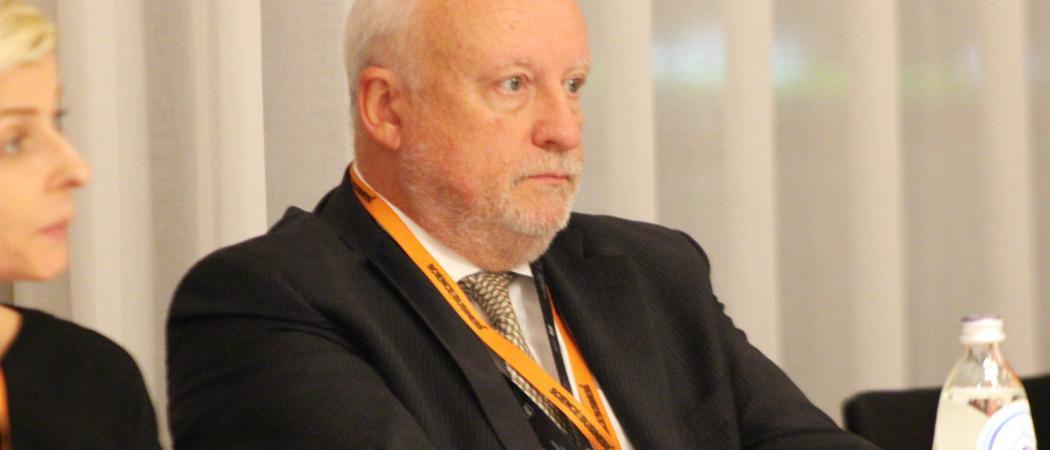Pierre Meulien, director of the Innovative Medicines Initiative wants to see pooling of international research efforts to help curb the spread of COVID-19 and develop treatments for the respiratory infection it causes

Pierre Meulien, executive director of the Innovative Medicines Initiative. Photo: Lysiane Pons, Science|Business
Pierre Meulien, director of the EU’s Innovative Medicines Initiative (IMI), is hopeful that calls for a coordinated global R&D response will lead to a pooling of research against the spread of the new coronavirus.
And judging by the initial response when IMI launched its coronavirus research call last week, there is “a great deal of interest” from the scientists in Europe and beyond, in contributing to this effort, Meulien said. “Given the excitement in the community, I think we should be optimistic,” he told Science|Business.
Meulien is leading efforts by the IMI, a public-private partnership, to quickly invest €45 million from Horizon 2020, to advance development of diagnostics and therapeutics for COVID-19. That money is expected to be matched by contributions in kind from pharmaceutical companies taking part in the research.
Last week, IMI held an online meeting of potential applicants and the feedback looks very promising. To speed up the research, IMI has been in contact with other international research funding bodies to make sure calls are optimised, to avoid overlapping work and ensure there are no gaps in understanding of the virus.
Individual international research funding efforts should be complementary to each other, Meulien said. “I think the most important thing is that we look at [the COVID-19 epidemic] globally, and that we have a global coordinated response.”
For the IMI call, research consortia need to be made up of at least three independent legal entities, each established in a different EU member state or associated country. But Meulien dismissed concerns that this requirement would slow down research. Finding three partners in three different countries is a, “no brainer for researchers,” he said.
Long-term EU funding of collaborative R&D projects has cemented long-lasting research networks, said Meulien. “I think people underestimate how mature the European scientific and industrial networks are.”
Meulien also dismissed any concerns about the speed of response of European researchers. When the West Africa Ebola epidemic began to spread in early 2014, IMI launched a call for the development of a vaccine. The first clinical trials of the IMI funded vaccine EBOVAC2 started in April 2015. To get a vaccine to clinical trials in less than a year is “really fast,” Meulien said.
As in the case of Ebola, IMI has fast-tracked its application procedure for the coronavirus research call. A typical IMI project takes about five years on average to complete, and grants are usually allocated within eight months of proposals being submitted, but in this case the first projects will be ready to start in June.
While the IMI can speed up its bureaucratic processes, it cannot short circuit safety rules in clinical research and drug development. “We can fast track a lot of things, but we cannot compromise on the regulatory and ethical frameworks that we have for good reason,” Meulien said.
IMI expects some of the drug development projects will take less time than others to produce an outcome, because it expects proposals to repurpose existing drugs, which are approved for other diseases, and proposals for drugs that are in the later stages of development and already have clinical safety and efficacy data.





 A unique international forum for public research organisations and companies to connect their external engagement with strategic interests around their R&D system.
A unique international forum for public research organisations and companies to connect their external engagement with strategic interests around their R&D system.